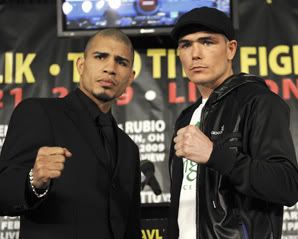 Another week another title, once again on the old goat Generalissimo Trujillo. I was completely sucked in by Trujillo: Causas De Una Tiranía Sin Ejemplo (Trujillo: Causes of a Tyranny without Equal) by Juan Bosch. Juan Bosch was one of Dominican Republic's most prolific intellectuals, a former President, and a monumental figure in the politics of DR. He wrote this in exile in 1961, before coming to power, and in fact before the ultimate downfall of Trujillo. The book is a must read for those of us American Dominicans who grew up stateside and don't have the best narrative sense of Dominican history. Although the subject of this title is Trujillo, Prof. Bosch in the process outlines in fast moving, incisive chapters the historical eras of the island from the times of Columbus, through Spanish and Haitian rule and into the first of two 20th C. US invasions. I've known for a long time the pieces that come along to us from parents on national holidays, like the upcoming DR Independence Day however this was precisely what I lacked for my assorted jumble of DR historical facts: a set of discrete periods of DR and some corresponding themes, the canvases on which the historical facts become a story. Unfortunately in this particular case it is told with a tragic bent as a decoding of the causes of the rise of dictatorship. As Bosch guides us through these eras he touches on the cultural and social legacies they left, and constructs a genealogy of the causes of both Trujillo the unique man/monster and also his unmatched tyrannical regime. Bosch convincingly argues that Trujillo was the consummation and culmination of the full array of historical forces at work in the colonization of the Caribbean and of DR in particular.
Another week another title, once again on the old goat Generalissimo Trujillo. I was completely sucked in by Trujillo: Causas De Una Tiranía Sin Ejemplo (Trujillo: Causes of a Tyranny without Equal) by Juan Bosch. Juan Bosch was one of Dominican Republic's most prolific intellectuals, a former President, and a monumental figure in the politics of DR. He wrote this in exile in 1961, before coming to power, and in fact before the ultimate downfall of Trujillo. The book is a must read for those of us American Dominicans who grew up stateside and don't have the best narrative sense of Dominican history. Although the subject of this title is Trujillo, Prof. Bosch in the process outlines in fast moving, incisive chapters the historical eras of the island from the times of Columbus, through Spanish and Haitian rule and into the first of two 20th C. US invasions. I've known for a long time the pieces that come along to us from parents on national holidays, like the upcoming DR Independence Day however this was precisely what I lacked for my assorted jumble of DR historical facts: a set of discrete periods of DR and some corresponding themes, the canvases on which the historical facts become a story. Unfortunately in this particular case it is told with a tragic bent as a decoding of the causes of the rise of dictatorship. As Bosch guides us through these eras he touches on the cultural and social legacies they left, and constructs a genealogy of the causes of both Trujillo the unique man/monster and also his unmatched tyrannical regime. Bosch convincingly argues that Trujillo was the consummation and culmination of the full array of historical forces at work in the colonization of the Caribbean and of DR in particular.Dr. Bosch's analyses and his prognosis is frighteningly accurate. Ironically the book itself also serves as an example of the prime character flaw Dr. Bosch diagnosed in Dominicans of 1960s (and today?): destructive gossip, el bochinche maligno. Dr. Bosch stresses repeatedly the role of classism and social position in DR. He points to Trujillo's insecurities around his lower class heritage, and to instances of explicit rejection by the Dominican social elites of the highest ranks, as the roots of Trujillo's unquenchable ambition for wealth and power. As I mentioned the book was written just months before the assassination of Trujillo, and the subsequent short Presidency of the author Dr. Bosch himself, aborted by a military coup and an invading US Army. Despite all this ensuing historical drama, in a post-scriptum written in 1991 the only further insights Bosch saw fit to add to the text were more gossip to confirm Trujillo's low class origins.
Unlike the last book this one grabs you and reads quickly and to the point. Unfortunately it is in Spanish and I'm not sure there are translations available. If you are trying to learn Spanish this may not be a bad one to tackle. You will get some useful cultural history of Dominicans and a glimpse into a dark and bizarre dictatorship that nonetheless directly shaped the people who today largely populate Washington Heights & Inwood. Locals can pick it up @ Calliope bookstore on Dyckman Avenue.






